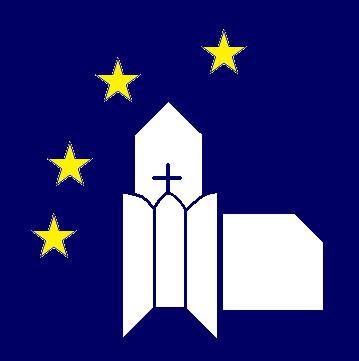Message of the 37th Theology Congress (You can read the original in Spanish)
Asociación de Teólogos/as Juan XXIII (John XXIII Association of Male & Female Theologians),
11th September 2017
Women & Religion: From Discrimination to Gender Equality
From 7th to 10th September 2017 we have celebrated the 37th Theology Congress on “Women & Religion: From discrimination to Gender Equality” in a climate of serene debate, sincere dialogue and a brotherly-sisterly atmosphere. We began by observing a one minute silence as an expression of condemnation of the terrorist attacks of Barcelona and Cambrils and in solidarity with the families, and another one for the murders of women that have taken place in Spain and all over the world. We join together in yet another minute's silence at the grief of the peoples affected by various hurricanes and earthquakes that have caused dozens of deaths in the United States, Mexico and the Caribbean.
1. We have made a critical analysis of Patriarchy as a system of domination against women, girls, boys and vulnerable people in society. This system is allied with other models of domination: Capitalism, colonialism, fundamentalism, depredation of nature that provokes discrimination of gender, class, ethnicity, culture, religion, country of origin and sexual orientation in all spheres of life: language, daily life, politics, the economy, education, work, family, the home, science, artistic creativity, places of entertainment, communication media, publicity.
2. Our criticism extends to the religions, that have a patriarchal structure, transmit a male-orientated ideology, impose a macho morality and develop sexist practices. In the majority of cases women are not recognized as religious and ethical persons but are considered as inferiors, subordinates, assistants. They are excluded from sacred areas, they are marginalized from posts of responsibility, from the exercise of power and the areas of decision. They are obliged to assume attitudes of obedience and submission that are qualified as virtues.
3. We have critically analyzed and condemned violence against women and dissident sexual identities in their multiple examples: colonized bodies; macho violence as a weapon of war, rape, prostitution, trafficking with women, rental of wombs, sexual abuse of girls and boys, sale of organs, stolen girls and boys, death sentences, feminicides, attacks against gays, lesbians, bixsexuals, transexuals, intersexuals, maltreatment of children, removal of the custody of sons and daughters from their mothers and delivery to their fathers, condemned for maltreatment.
4. Religious leaders are frequent in their condemnation of abortion, divorce, sexual relations before marriage, anticonceptives, homosexual marriage, in vitro fertilisation, sexual and reproductive rights. They disqualify gender theory which they call “ideology of gender” and they consider it the most perverse of humanity. They condemn feminist movements and LGTBI persons and oppose laws that grant equality between men and women. In their public declarations, they frequently generate other kinds of gender violence: sexual, symbolic, religious, psychological and foment macho and homophobic attitudes and behaviours in believers and citizens. But, however, they show a complete insensibility towards gender violence, patriarchy, sexism and phobia of LBTBIs. In the Catholic Church, sexually dissident persons are vetoed from access to the priestly ministry and the participation in pastoral activities.
5. We have given the word to activist women who have described the contributions of feminist movements from other geocultural areas especially in Latin America, Africa and Spain and to women believers in the Movements of Women in religions that, in consonance with feminist movements, fight against any kind of discrimination and defend gender equality.
We value positively the fruitful encounter between Feminism and Christianity that has provoked the rebellion of women against the patriarchal system and the birth of Feminist Theology that recognises the prominence of women in the movement of Jesus, understood as an equalitarian discipleship, in the birth of the Christian Church as witnesses of the Resurrection and in the early Christian communities where they excercised ministries and charismas without discrimination, in line with the assertion of Paul of Tharsis: “ There are no longer Jew nor Greek; neither slave nor free man; nor woman nor man, since you are all one in Jesus Christ (Galations 3.28).
The exclusion of women from the ordained ministry does not respond to either biblical, theological or historical reasons but to the continued existence of the patriarchy installed in the dome of power and in the organization of the religious institutions. We denounce the excommunication of ordained women priests in the Catholic Church.
The fertile encounter between decolonialised feminism and feminist theologies questions the hegemonic western feminism, that question the colonialisation of power, knowledge, of having, of being, of gender, defend the decolonization of minds, of the theological discourse and liberating practices of religions and recovers wisdoms, symbols and the spirituality of the original peoples.
We have discovered that spirituality and politics are two inseparable realities and we have taken notice of the need and urgency for a political spirituality that listens to the cry of the Earth and the harrowing clamour of millions of people hungry for bread and rights and to fight for Another Possible World.
The lesson we have learnt in this Congress is that there is no contradiction between Feminism and Religion and it is possible to be a believer and a feminist. That is the challenge that we have to respond to.
Madrid, 10th September 2017
Tranlation by Hugo Castelli Eyre
